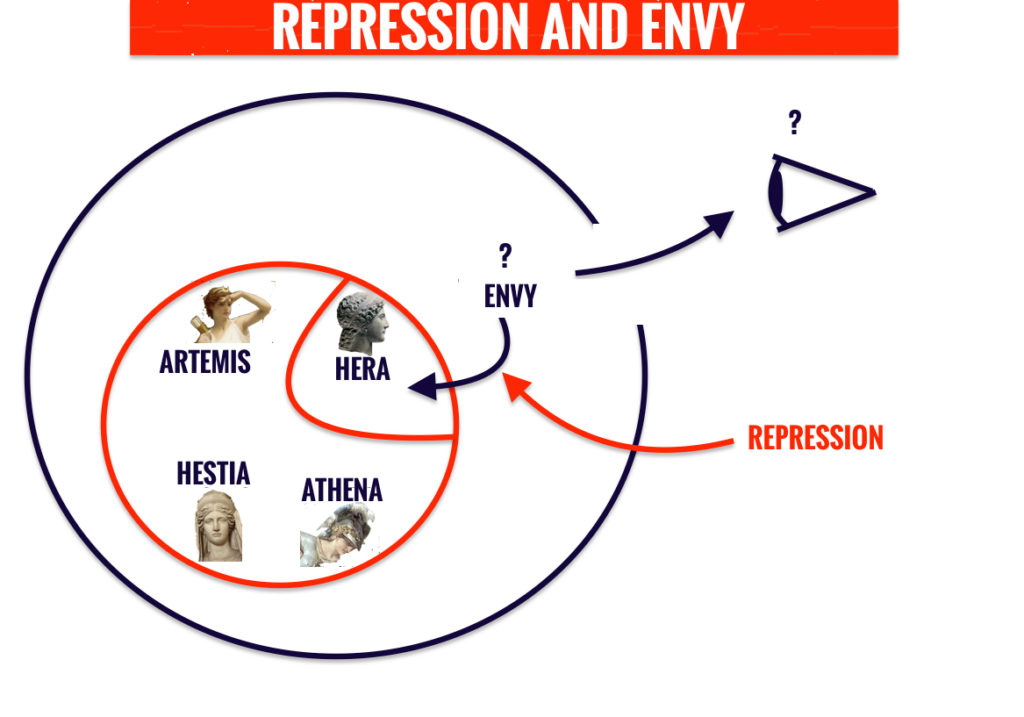We have talked about “beliefs” as a construct of memory, and how it is that emotions tie to ideas in order to make a complete belief. This social habit might be said to be the opposite of intellectualization in a way, since it is one where the emotion is allowed to remain present, but the idea or knowledge of a conflict is what is sent out of the conscious mind.
To prevent the conflict caused by pleasurable instincts, should they be satisfied, the desire is “stuffed” into the unconscious, and with it, knowledge of the conflict between one’s morality and their instincts. You might see this as an inexplicable naivety, forgetfulness, or lack of awareness of one's behavior and how it is perceived.
An example would be a man who shows up late each and every time to the Friday dinner with her parents, and isn’t making excuses. He is genuinely sorry, cites the traffic as a problem, as he does work that day, but never seems to learn a better way to go instead. It seems like he is too naive to figure out that the problem would best be solved so that there is less relationship conflict, and he is intelligent enough to know better. It’s just that he does not have the skill to address that he would prefer a different weekly schedule, and doesn’t always want to have dinner with her parents on Fridays. He likes her and her parents, and so he represses that information from his own mind.
A major usefulness in understanding repression rests in the annoying habits that people have - those which annoy others, but which they, themselves, don’t seem to be aware of. This, then, is one you must have seen often in your romantic life.
Say that a woman has a tendency to hold things out to her partner all the time while his hands are already full. He wonders when she picked up the tendency to do that - he is carrying the dry cleaning into the house, while she holds out the keys to him. What is he to do? Drop the laundry? Or while he is driving her to work, she holds out her coffee and says, “Here, can you hold this for a second?”
No, he can’t. He is driving. But she persists in burdening him in ways that he can’t accommodate at the moment that she wants, which is upsetting to her. It feels disrespectful to her that he does not accommodate her needs, and this may be projection on her part as well, but she is also repressing the conscious knowledge that she feels unimportant, perhaps based on an abusive past, and it would be too painful to have the direct knowledge that what she really wants is to be considered “number one” by him, more important than anything else, including carrying the dry-cleaning or driving a car.


